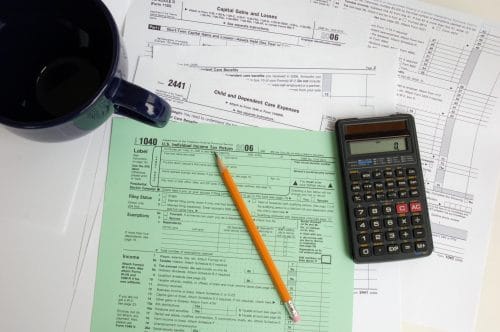
If you were injured in an accident and received a personal injury settlement, you may wonder: Do I have to pay taxes on the money I received? As is true of most tax issues, this is not as simple as a yes or no. We recommend talking to a CPA to get the facts about your specific settlement. However, the following general facts apply to most settlements. If you have not yet been awarded a settlement, contact The Law Offices of Larry H. Parker at 800-333-0000 for a free legal consultation.
Factors Affecting Whether or Not You Will Need to Pay Taxes on Your Personal Injury Statements
Some of the factors that will impact whether or not you owe taxes include whether or not have you had medical expenses deducted from your taxes in the previous year, whether you have received punitive damages, whether you received a settlement for lost profits from a business, how much you are receiving for lost property values, and if you are receiving interest as a part of your settlement.
Taxing Damages for Emotional Distress, Physical Injuries, and Mental Anguish
In most cases, if you receive a settlement for physical injuries (this includes emotional distress and mental anguish) you will not need to include that as proceeds or part of your income. However, there is a single major exception to this rule: Deducted medical expenses.
If you have deducted medical expenses on a previous years’ income tax and received a tax benefit for those payments, then you may be required to claim that on your settlement for medical expenses. If you are given compensation for emotional distress or mental anguish separate from that caused by a physical injury, then those damages are required to be claimed as income.
Taxing Damages for Lost Profits
If you are a business owner who lost profits after your injury, and you receive compensation for that lost income, then it will be considered net earnings and will be subject to self-employment tax. Your accountant should designate these types of damages as “business income” on your return.
Taxing Damages for Lost Property Value
It is common for a personal injury settlement to include damages for property loss. These are generally not taxable unless the amount you receive is more than the adjusted basis of your property. That will be considered a form of income and must be reported. For example, if your car was totaled in a car accident and you were paid for replacement value instead of the current value of your car, the difference between the two would be taxable.
An Account is the Best Person to Get You the Answers You Deserve
The fact of the matter is that only an account can help you understand the specifics of what will and will not be taxable. At The Law Offices of Larry H. Parker we can provide the legal services to help maximize your settlement. Call us now at 800-333-0000 to get started.



